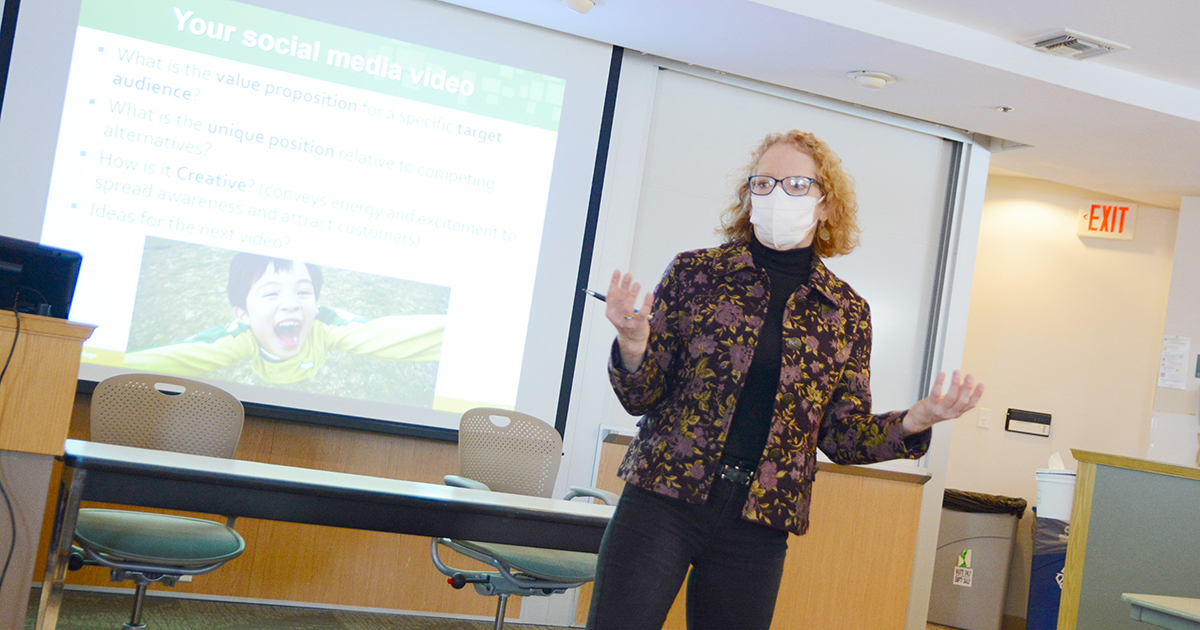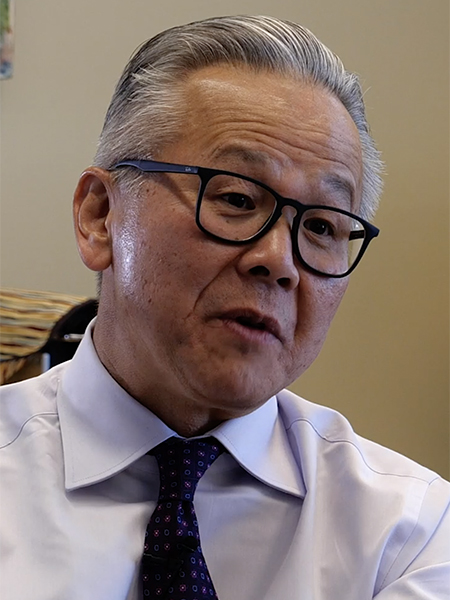What Hiring New Faculty Members Means for the College

For Ken Matsuno, Babson College is a village. He has been at Babson for a quarter-century, and he knows the critical importance of the faculty in building and maintaining that community.
Now, as the Murata Vice President of Academic Affairs & Dean of the College, Matsuno is helping to expand the village, overseeing the largest single-year hiring of faculty members in Babson’s history. The College is hiring 16 full-time faculty members, plus three visiting professors, growing the size of the faculty to 203 for the 2022–2023 academic year. The 19 new additions will cover eight of the College’s 10 academic divisions.
“Every single finalist is very impressive,” Matsuno said. “We have great faculty here, so I am very confident that they are going to add greater value to the existing faculty. But, more than anything, I’m very pleased that they are excited about us.”
Matsuno recently sat down with Babson Thought & Action to discuss the enthusiasm among the faculty and the candidates, and what it means for the College.
What is driving the growth in faculty hiring?
“Number one, I think there’s a demographic change. We have quite a few baby boomer faculty members who have expressed their desire to move on to the next stage of their life, and we congratulate, thank, and wish them well in retirement. There is a generational shift going on, and we have to address that. The second part is that we have a greater clarity on our enrollment situation across the board. Babson continues to be in high demand and we are seeing positive momentum for fall for both undergraduate and graduate programs. We are feeling great about hiring more faculty members.”
What is attracting faculty to Babson now?
“The general reputation of the College has grown dramatically in the last 15-20 years. I came here in 1996, and, of course, in those days, Babson was strong, but people perceived Babson as a sort of niche, specialty school. But, now Babson’s reputation is much broader based, and it’s recognized globally as a premier institution for business, management, and entrepreneurship. So, I think the reputation effect is really strong. The faculty candidates are very well informed about Babson, what it is known for, such as entrepreneurship, entrepreneurial leadership, and innovation. Those are some of the keywords that I hear repeatedly from the faculty candidates. So, they are aware of what Babson is known for, and they want to be a part of it.”
The College has been building on its position as the No. 1 school for entrepreneurship with a purposeful expansion to entrepreneurial leadership. How is that manifesting in the new faculty hires?
“The faculty candidates are very sophisticated people. They are not interpreting entrepreneurship as starting up a business. They are applying that concept of entrepreneurship in a variety of ways. For example, when we we have interviews with philosophy professors and science professors, they talk about entrepreneurship, they talk about what that means in their own field. The science professors talk about entrepreneurship. Well, of course, entrepreneurship or entrepreneurial leadership is a more applicable concept beyond the starting of a business. So, yes, I think Babson has that core identity, but I think that core identity is very flexible, applicable, and powerful in many different contexts.”

Ken Matsuno, the Murata Vice President of Academic Affairs & Dean of the College
What does the growth of faculty mean for professors on campus?
“The greatest influencers of this whole recruiting effort are the faculty members and the division chairs. They are the ones who are convincing new faculty to join the excitement we have on the campus. I think for individual faculty, bringing in new colleagues to work on the research projects, I think that’s really exciting. They bring in fresh insights and knowledge, and that’s part of it. Another exciting part is that they are going to be new teaching colleagues; they are going to teach together in the classroom. That’s also exciting. So we are really bringing in the people who live with us. Babson is more than a simple organization or employer. I think Babson is like a village. You come in and join us, and then you invest, you engage, and then you don’t (want to) leave here. I think that’s the way Babson faculty is. Often, I get the question, ’What is it like to be a Babson faculty?’ My answer is always, ’Well, you are joining more than a place for employment. You are joining a place to grow, and you really live with your colleagues.’ And, so that’s why I say this is like a village more than an organization.”
The faculty have been on the front lines the past couple of years as the College has navigated the pandemic. How have Babson faculty performed over the last two years?
“The faculty did a remarkable job for the last two years. They handled the transition to remote learning in March 2020 remarkably well. In just over a week, they transitioned from in-person interaction to online and then back to mixed modality—hybrid, online, in person—in the fall. They handled that delivery of education at the highest level very well. Academic continuity and excellence is really the key objective of the institution, and they did a great job. In terms of the scholarship and research, I found that they maintained a very high level, even though challenges remain. It takes a longer time to get articles published, for example; it takes a longer time to get the review process done. So there remain challenges, but I think the faculty have been doing a very strong job.”
“Entrepreneurship, entrepreneurial leadership, innovation. Those are some of the keywords that I hear repeatedly from the faculty candidates. So, they are aware of what Babson is known for, and they want to be a part of it.”
Ken Matsuno, Babson's Dean of the College
What does this mean for the College as a whole?
“I think the impact will be felt over many years. I think your faculty career is made and developed over five years, 10 years, 20 years. So, the true impact will be held in the long run, and I think that’s the exciting part. Unless you invest right now, you don’t get the fruit in 10 years and 20 years, so I think that’s the nature of the investments and long-term strategies that we have to execute.”
Posted in Community




